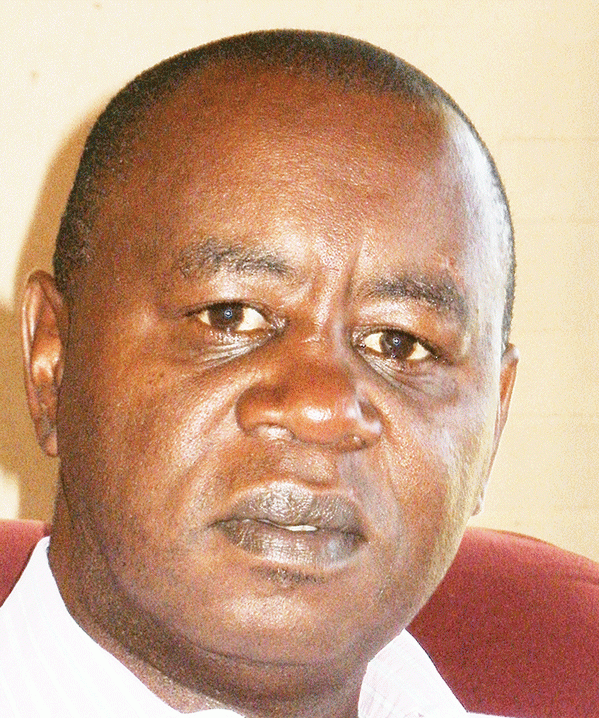
By Vince Musewe
MANY developmental problems can be attributed to the failure of leadership and, in particular, to the absence of either “ethical leadership” or “integrity in leadership”.
There are three closely linked aspects of integrity, these include: The institutions of integrity, individual integrity and the integrity of institutions.
Institutions of integrity refer to the institutionalised norms and codes of behaviour (both formal and informal) that “bind” individual behaviour, and shape the context of individual integrity, including that of leaders.
Such institutions define the moral boundaries that affect individual behaviour. We then have individual integrity, which relates to the traditional understanding of integrity as honesty; appropriate behaviour (“doing the right thing” according to the norms and rules); or, consistency between words and actions and lastly, the integrity of institutions, which means whether an institution functions correctly, is legitimate and, is fit for purpose.
There is no argument that the integrity of our institutions remain a key challenge in delivering socio-economic development. In fact, this is a perennial problem faced by Africa, especially where we have political predatory coalitions who exercise power and seek influence over the system to meet narrow political or economic interests at the expense of a broad developmental agenda. The importance of institutions in shaping developmental trajectories cannot be overemphasised.
Developmental integrity is a term that seeks to capture the essence of how leadership and institutional integrity are critical to any sustainable development agenda. Zimbabwe has had a myriad of developmental blueprints since 1980, but the challenge has always been delivery backed by continuous and objective monitoring and evaluation of stated objectives. One hopes that the National Development Strategy One (NDS 1) will break this pattern.
In our context, at the centre of our developmental agenda are; the Office of the President and Cabinet and its oversight role, the Finance and Economic Development ministry and its effectiveness in ensuring that financial resources are effectively collected and applied to developmental projects while the ultimate results will depend on the Public Service Commission with regard to the management and capacity building of implementation agencies (line ministries). The continuous monitoring and evaluation of the NDS1 will, therefore, ultimately determine whether we succeed or not in our developmental objectives.
- Chamisa under fire over US$120K donation
- Mavhunga puts DeMbare into Chibuku quarterfinals
- Pension funds bet on Cabora Bassa oilfields
- Councils defy govt fire tender directive
Keep Reading
According to the policy document, “the NDS1 monitoring and evaluation policy framework is anchored on the principles of IRBM, where developmental results, as outlined in the National Development Results Frameworks and Sectoral Development Results Frameworks will be monitored throughout the NDS1 implementation period to evaluate and monitor progress through results-based monitoring and evaluation.
The NDS1 monitoring and evaluation framework is drawn from the national and sectoral development results frameworks, which outline national priorities, key result areas, outcomes, key performance indicators (KPIs), baselines and targets. The RBM&E will place greater emphasis on measurement of livelihoods and economic transformative results, that is, outputs, outcomes and impacts. It will take cognisance of the use of inputs and completion of activities as the programmatic entry points.
Further, the RBM&E framework will track the utilisation of financial resources allocated for programmes and projects to ensure transparency and accountability as key tenets for good governance. To ensure efficacy in the implementation of NDS1, bi-annual reviews, coupled with a mid-term and terminal evaluation will be undertaken.
This sounds quite sophisticated and well-intended, however we must be circumspect in what has caused failure to deliver in the past. In my opinion, key issues have always been lack of consequence for non-delivery and lack of transparency and accountability. It is important that we always objectively evaluate developmental performance and the actors must not evaluate themselves. That to me is a major flaw with the NDS1. In my opinion, an independent and non-partisan development evaluation board would serve us better and deepen the perspectives and provide better guidance especially where failure to deliver is apparent. Development, after all, is in the interest of all citizens.
Our key problem is that the development agenda has been politicised and has had to fit a particular political narrative, while the opposition thinks its role is to continually criticise as if it would do better. This has created an “us” and “them” mentality and the truth about the state of affairs suffers. Because of this, we have seen seemingly contrasting economic development policy analyses which unfortunately lead to conflicting views and reactions creating an incongruent developmental environment.
Having said the above, our country has so much potential which needs continual honest debate and evaluation if we are to realise it. The NDS1 is a good strategy on paper which must be backed by honest evaluation, that is developmental integrity.
Above all, developmental integrity is driven by leadership integrity which is determined by leaders who must: provide appropriate frames for thinking about developmental goals, processes, and programmes; establish necessary coalitions to achieve developmental goals; encourage inclusive stakeholder dialogue and managing conflict and divergent interests; develop successful strategies for balancing institutional requirements, organisational demands and the interests of individual stakeholders; assess the intended and unintended consequences of actions taken in pursuance of collective goals; and assume responsibility for, and undertake corrective action to address strategies that do not promote or undermine collective goals.
Developmental integrity is a complex process that must take account of the political landscape, in which various actors with varying degrees of power and influence, co-operate and compete in order to achieve their goals.
There, however, must be congruence between the motives of political leaders and developmental institutions who must drive the developmental agenda. Without this congruence, development suffers.











